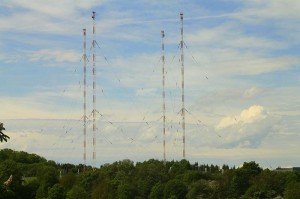 Many long-time shortwave listeners may find it ironic that the likes of Voice of Russia now broadcasts from a studio in downtown Washington DC. I just read this news article posted on CNN about VOR’s new presence:
Many long-time shortwave listeners may find it ironic that the likes of Voice of Russia now broadcasts from a studio in downtown Washington DC. I just read this news article posted on CNN about VOR’s new presence:
Jordan Hostetter doesn’t know it, but he’s a target. He’s a young professional living in Washington, curious about international events and listens to the radio while driving to work — just the kind of person Voice of Russia radio is trying to reach.
Changing American hearts and minds about Russia has been Voice of Russia’s mission since it first went on the air in 1929, broadcasting from Moscow via short-wave radio. It still does use short wave but with the Internet, Facebook and Twitter, that seems like a blast from the past.
It goes on to mention how, long-time rival, Voice of America has gone totally digital. Not totally true, in fact, but VOA is putting a major effort into moving off of the shortwave bands. As we mentioned previously, in their shortwave sunset plans, the BBG plans to keep shortwave alive in parts of the world where free speech is suppressed and where shortwave is the only option. They will, most likely, rent broadcasting time from other providers and shut down VOA-run facilities.
What was notable in this CNN article was a tidbit about a VOA attempt to do what their Russian counterpart is doing:
VOA says it tried to get a license to […] broadcast on local Russian radio in Russian to Russians. But Elez Biberaj, VOA’s Eurasia division director, says it was prevented from affiliating with Russian radio and television stations “because of threats and because of the pressure that the government brings on license holders.”
So, I guess, VOA will take on this objective with a web presence?
No doubt, our international broadcasting field is changing. I believe we’ll see more broadcasters following VOR and CRI’s local vector. Perhaps, in fact, this is just what our AM band needs.



 (Source:
(Source: 